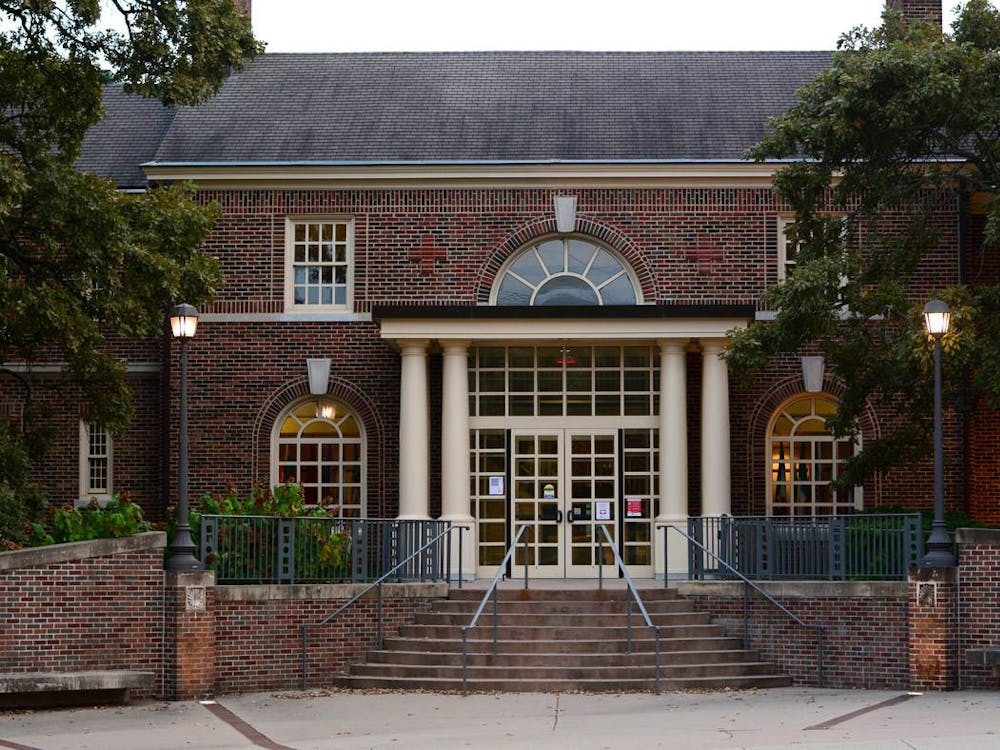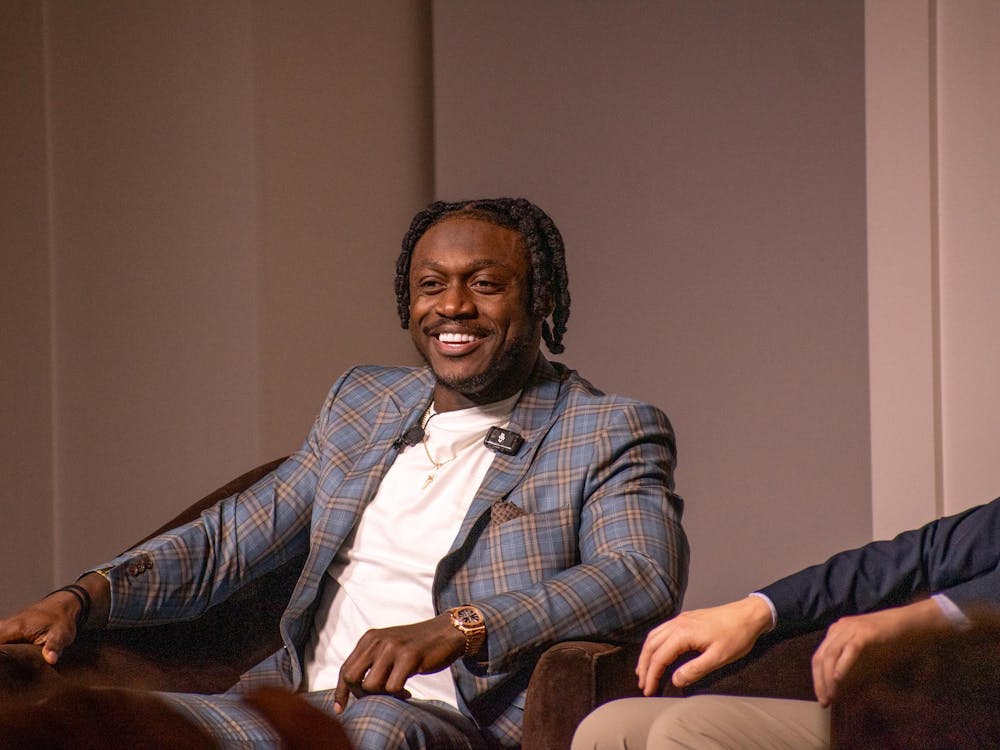By Emily Tate, Managing Editor
The committee tasked with identifying Miami University's next president has reviewed resumes and held interviews with candidates, but beyond that, little is clear about the status of the presidential search.
This uncertainty, critics say, is because Miami's use of an executive search firm deliberately masks the process from the public. And, while this serves the interests of the Board of Trustees - who, in September, announced the search would be secret - some believe the approach is harmful for Miami's students and employees.
When Miami officials signed a contract with search firm Isaacson, Miller last summer, James Finkelstein said they put the university in a vulnerable position.
"I've negotiated hundreds of contracts for all sorts of agencies - government institutions, non-profits, public and private universities. This is not the kind of contract I would ever consider signing," Finkelstein said. "I can't imagine anyone ever really allowing it. I think it's a problem."
After reviewing the contract, Finkelstein, who is a Miami alumnus ('74) and a professor of public policy at George Mason University, sent a 1,400-word letter to the chair of the Board of Trustees, David Budig, expressing his concern.
"Candidly, I've not seen many agreements that provide as few protections to the university as does Miami's contract with Isaacson, Miller," Finkelstein wrote in the letter. "In fact, I would argue that in signing this contract, the university has failed to protect the most basic aspects of the public interest as well as those of the faculty, staff, students and alumni."
In his letter, Finkelstein describes, in detail, four red flags he noticed in the contract, though he says there are far more.
His first concern was that Isaacson, Miller bases its fee on a percentage - in this case, one-third - of the president's first-year compensation package. This, he argues, provides incentive for Isaacson, Miller to seek out candidates with a "higher compensation requirement," like a corporate CEO.
In the contract itself, which The Miami Student obtained through a public records request, Isaacson, Miller estimates that the next president's first-year compensation will be $450,000, and that Isaacson, Miller will therefore be entitled to $150,000 in fees from the university.
When Isaacson, Miller assisted Miami with its presidential search in 2005-06 - a search that would ultimately lead to the hiring of current president David Hodge - it also charged the university for one-third of the president's first-year compensation package.
For that search, however, the president's estimated compensation package was $325,000. Hodge's starting base salary in 2006 was, in fact, $325,000, with the potential for an increase each year as well as a 20 percent bonus. Ten years later, Hodge's current base salary is about $432,000, slightly less than what the university and Isaacson, Miller expect to pay Miami's next president in his or her first year.
Enjoy what you're reading?
Signup for our newsletter
In his letter to Budig, Finkelstein also expressed concern with the contract's language regarding reimbursement expenses, which Isaacson, Miller described as travel, advertising and other costs incurred during the search process.
"By signing this agreement, the university has provided the search firm with a literally blank check," he wrote. "It would appear that the firm could decide to travel around the country meeting with individual candidates, fly first class and stay in luxury suites."
As of November, when The Miami Student obtained records of the university's payments to Isaacson, Miller, the firm had charged the university for two of four installments. For travel expenses, the firm charged $978 in September and $4,018.13 in October. However, by the end of the 2005-06 search, travel expenses totaled more than $34,000, and many of the largest charges came later in the spring.
Finkelstein's third issue with the contract pertained to the 11 percent fee Isaacson, Miller would charge Miami for indirect expenses like "communications, postage and delivery, printing and copying and research."
"The existence of this fee could, in theory, lead a search firm to deliberately increase expenses in order to generate a greater overhead fee," he wrote. "Remember that this fee would be charged on top of travel and entertainment expenses as well as the professional fee. In all likelihood, this is just another way of adding a profit line."
In the contract, Isaacson, Miller said it would charge for these fees in each of the four monthly retainer billings, on top of the monthly installments for $37,500 (which amount to the $150,000 search fee). The university's payment records show that Isaacson, Miller charged Miami $41,625 in both September and October.
Based on the payment records between Miami and Isaacson, Miller from the 2005-06 search, the firm will likely charge $41,625 in the two remaining retainers as well. (In 2005-06, the four retainer billings were set at $27,083, but each installment of the executive search fees was charged at $30,062.50.)
Finkelstein's fourth concern was the absence of any mention that Isaacson, Miller would perform due diligence throughout the search.
"Not only should this be an explicit requirement, there should be a statement of what this constitutes as well as a requirement that the firm accepts liability for material omissions or misinformation," he wrote. "Nor is there a timeline or mention of milestones - other than when the firm expects to receive its retainer payments."
After receiving this letter, Budig asked that the secretary of the board, Ted Pickerill, respond on behalf of the Board of Trustees. In an email to Finkelstein, Pickerill's reply was brief and pointed.
"Miami has worked with Isaacson, Miller a number of times over the past several years," Pickerill wrote. "We have been quite pleased with their service, and expect to have a very successful presidential search. Thank you once again for your letter and for sharing your concerns."
Representatives from Isaacson, Miller declined to comment for this story.
Finkelstein said the increasingly common practice of employing executive search firms to aid in university searches has contributed to the image of a university as a corporate entity rather than an educational institution. He said, historically, the purpose of universities has been to "preserve, transmit and create knowledge."
"Today, people are now talking about universities more in terms of a corporation," he said. "They want to look at enrollment more every semester, talk about students as customers. Growth seems to be the most important metric in assessing performance."
Karen Dawisha, who is co-president of Miami's chapter of the American Association of University Professors (AAUP), also compared Miami's presidential search to the search for a corporate CEO, but for different reasons.
When looking for the CEO of a publicly traded company, that company's shareholders would have a say in who is hired, she said. But at Miami, faculty, staff and students - conceivably, Miami's "shareholders," - do not have a voice in hiring its president.
"In the corporate world, the world of business, greater involvement is expected," she said. "Why can't we have it at a university?"
Dawisha said she could understand that some presidential applicants would prefer discretion throughout the search, but doesn't think it should be the university's priority when the stakes are this high.
"The interests that should be served are the interests of the university that is hiring," she said. "I do not see how our interests are being served by the secrecy of this process."
This search, which officially began at the end of August, is expected to last six to nine months, with a single presidential finalist announced this spring.




